UniCRE, the Unipetrol Centre of Research and Education, held the 2nd thematic COMSYN workshop on May 23 – 24, 2019 in Prague and Litvinov, Czech Republic. The workshop gathered biofuel experts and members of press for the discussions on the Future of BTL Products in Europe.
The workshop began in Prague with ten presentations from invited experts covering topics of the current status of biofuels in Europe, the European biofuel targets for the future and the technology options for biofuel production. The experts were representatives of industry, SMEs, academia and research institutes, giving the audience an opportunity to gain versatile information on biofuels. The presentations are available at the end of this page.
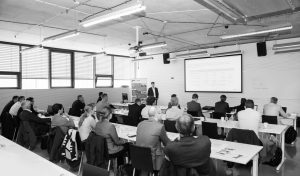
As the highlight of the first day UniCRE presented a second-generation biofuel made from biomass waste and conducted test drives in vehicles powered by biofuel made from woodchips. The chemical composition and possible use of the new fuel is substantially different from the current 1G biocomponents. Furthermore, it poses no risk of damage to the vehicle unlike the currently used methyl ester of rape oil.
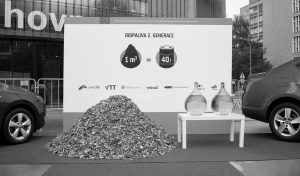
The introduction of 2G fuels obtained through the technologies using Fischer-Tropsch synthesis will reduce the content of oxygen and mainly of unsaturated hydrocarbons which possibly cause polymer deposits in the fuel system of passenger cars. Compared to the conventional fossil fuels, the product of the technologies using Fischer-Tropsch synthesis offers a higher cetane number which is the basic performance parameter of diesel oil.
The car show and the press conference was attended by more than 30 members of press. The audience had also a possibility to take part in the drive test as passengers.
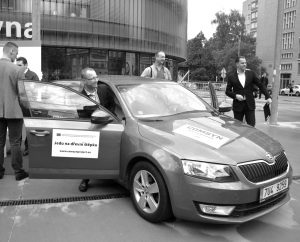
On the second workshop day, the participants were invited to the oil refinery of Unipetrol and research facilities of UniCRE in Litvinov. Research aimed at testing 2G biocomponents was initiated at UniCRE in order to meet the increasingly stringent emission limits set by the European Union. In 2017 UniCRE, as one of the beneficiaries of the COMSYN consortium, received funding from the EU HORIZON 2020 for the research.
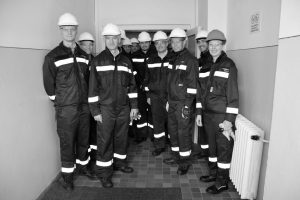
“We have looked into the options of separating and subsequently processing the products of Fischer-Tropsch synthesis in refinery technologies. To this end, we used pilot distillation and experimental testing units acquired as part of the modernisation of the research centre supported from the EU funds. To put it simply, we added fractions with different boiling points to similar refinery flows and modified them to products that are suitable for the production of high-quality fuels,” Jiří Hájek, Director of the Development and Innovation Section at UniCRE, explains.
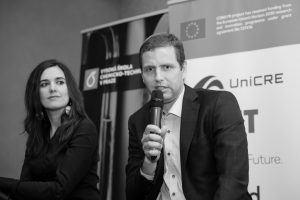
UniCRE 2nd WORK SHOP PRESS RELEASE
PRESENTATIONS FROM THE WORKSHOP
P. Simell (VTT): Introduction to COMSYN project
M. Yugo (CONCAWE): Refinery 2050: A look into opportunities and challanges
C. Schaverien (PETROGENIUM): Biomass-based liquid fuels by (co)processing in refinery units
M. Reinikainen (VTT): High quality (bio) fuels and chemicals via Fischer-Tropsch synthesis
M. Selinsek (INERATEC): Compact Fischer-Tropsch Synthesis in gas to liquid applications
M. Wuokko (NESTE ENGINEERING SOLUTIONS): FLEXCHX – Potential of F-T Syncrude in European Refining Industry
M. Bažata (GLENCORE): Current status and future of certified biofuels in renewable mobility
L. Krátký (CTU): Recent trends in pretreatment technologies for production of lignocellulosic biofuels
V. Hönig (CULS): 4E biofuel production criteria: Engineering, Environment, Energetics, Economy
D. Pchelintsev (NGT-SYNTHESIS): Methaforming: Profitable “last mile” technology for biofuels and Convert naphtha to gasoline with methaforming

